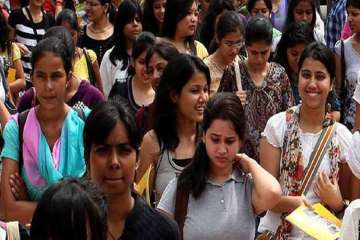National Population Register: How it is different from last NPR exercise conducted in 2010
The new NPR will have 21 categories for which people have to give information compared to the previous NPR which had only 15 categories to be filled. Opposition has hit out at the Modi government saying NPR will be used for NRC, however, Home Minister Amit Shah has said that there is no connection between NPR and NRC.
Following the passage of Citizenship Amendment Act (CAA) which has already caused massive protests across the country, the government has announced National Population Register (NPR) which will be prepared at the local (village/sub-town), subdistrict, district, state and national level under provisions of the Citizenship Act, 1955 and the Citizenship (Registration of Citizens and Issue of National Identity Cards) Rules, 2003.
The NPR exercise will be carried out between April and September 2020 in all states and UTs, except Assam, along with the house listing phase of the census exercise. Assam has been excluded because the National Register of Citizens (NRC) exercise has already been conducted in the state.
The objective of the NPR, being carried out under the aegis of the Registrar General and ex-Officio Census Commissioner, India, is to create a comprehensive identity database of every usual resident in the country. The database would contain demographic as well as biometric particulars.
A usual resident is defined, for the purposes of the NPR, as a person who has resided in a local area for the past six months or more, or a person who intends to reside in that area for the next six months. The law compulsorily seeks to register every citizen of India and issue a national identity card.
The last NPR data was last collected in 2010 along with the house listing phase of the Census 2011. Updating of this data was done during 2015 by conducting door to door survey.
A gazette notification for the forthcoming NPR has been published by the central government in August. On Tuesday, the Union Cabinet approved funds to the tune of over Rs 8,500 crore for the NPR exercise.
However, opposition and all those who have opposed CAA and NRC are also against the NPR after the present government added few more categories on which people have to provide their details. The new categories added in the present NPR were not there in the one existed in 2010.
New categories added in the present NPR
The 2010 NPR exercise had collected information based on 15 criterias while the present NPR will require people to give information on 21 points.
The new categories for which people will have to give information include:
- Passport number
- Aadhaar ID number
- Voter ID card number
- Drivering license number
- Mobile phone number
- Last place of residence
The above mentioned categories were not included in the previous NPR. All those who have been opposing the NPR are of the view that the information collected during this exercise will be used for the National Register of Citizens (NRC) which is facing massive opposition and has led to violent protests across the country.
However, Home Minister Amit Shah on Tuesday clarified that NPR is not linked to NRC but the opposition has been continiously targeting the government saying that NPR is the first step towards NRC.
The government has decided to update National Population Register (NPR) with a sanction of Rs 8,500 crores. NPR will require people to declare date & place of birth of parents and furnishing of data on 21 other points, CPI(M) Sitaram Yechury has said.
The National Population Register (NPR), which will be carried out across the country next year, will have credible data of every family and individual, to strengthen the national security and can be used for transparent and efficient delivery of social benefits, officials said on Tuesday.
During the NPR exercise, no documents will be collected at the time of door to door enumeration.
The benefits could be obtained in banking, insurance services, admission in school, colleges and hostels, scholarship, distribution of seed, fertiliser, pesticide, marketing credit, registration of land, property, shares, health and medical services, public distribution system, gender issues, child marriage, marital status, maintenance of separated women.
The government will get data on employment, disaster management, disability, old age pension, freedom fighter.
Another official said the socio economic caste census (SECC) is based on the NPR data, which was subsequently used for deciding different types of beneficiaries.
Household wise NPR data was used in better targeting of schemes such as Ayushman Bharat, Jan Dhan Yojana, Prime Minister Awas Yojna, Ujjwala Yojana, Saubhagya etc.
The NPR household data was also provided to various state governments viz. Tamilnadu, West Bengal, Odisha, Manipur for 'Sarvam', PDS scheme and Rajasthan for 'Bhamashah'. The NPR is a register of usual residents of the country.
A usual resident is defined, for the purposes of the NPR, as a person who has resided in a local area for the past six months or more, or a person who intends to reside in that area for the next six months.
The NPR will be updated along with house listing and housing census from April to September 2020.
ALSO READ: Muslims must be included in CAA, says Akali Dal leader Naresh Gujral
ALSO READ: No connection between NPR and NRC, says Home Minister Amit Shah
